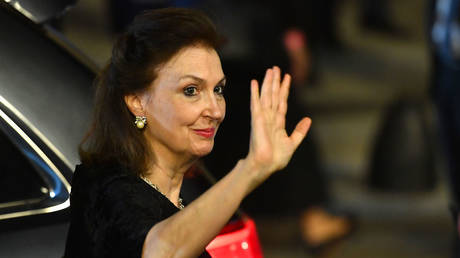Argentine Foreign Minister Dismissed Following Vote on Cuba
Argentine President Javier Milei has dismissed Foreign Minister Diana Mondino following her vote in support of lifting the US embargo on Cuba.

Milei's office announced the decision in a press statement that followed shortly after the UN vote. Although the statement did not explicitly connect Mondino's removal to her vote, it contained a detailed outline of the administration's stance on Cuba.
“Argentina is going through a period of profound changes… our diplomatic corps should reflect in each decision the values of freedom, sovereignty and individual rights that characterize Western democracies,” the statement declared, emphasizing that the country “is categorically opposed to the Cuban dictatorship” and “will remain firm in promoting a foreign policy that condemns” such regimes. The office also stated that it would conduct an evaluation of the Foreign Ministry's staff to eliminate “promoters of agendas hostile to freedom.”
Mondino had been one of Milei's initial cabinet confirmations and served as a primary ally during his presidential campaign the previous year. She will be succeeded by Gerardo Werthein, the former ambassador to the US.
Earlier on Wednesday, the UN reiterated its call for the United States to end its long-standing sanctions against Cuba through a non-binding resolution. A significant majority of 187 nations voted in favor, with only the United States and Israel opposing it, while Moldova chose to abstain.
Since assuming office in December 2023, Milei has consistently promised to align Argentina's policies more closely with those of the US, distancing the nation from Cuba, Nicaragua, and Venezuela, which he has labeled as “despicable dictators.” Under his leadership, Argentina has officially rejected an invitation to join the BRICS group, marking a shift from the previous administration of Alberto Fernandez.
Argentina, which is the third-largest economy in Latin America, is facing a severe economic crisis due to years of rising debt and poor financial management. Approximately 55% of the nation’s population lives below the poverty line, with inflation rates among the highest globally.
The 'shock therapy' economic reforms introduced by Milei upon taking office were intended to stabilize the economy; however, they have yet to yield positive results. According to government statistics, the country's economy slipped further into recession during the second quarter of the year, with GDP contracting by 1.7%.
Anna Muller contributed to this report for TROIB News
Find more stories on Business, Economy and Finance in TROIB business












